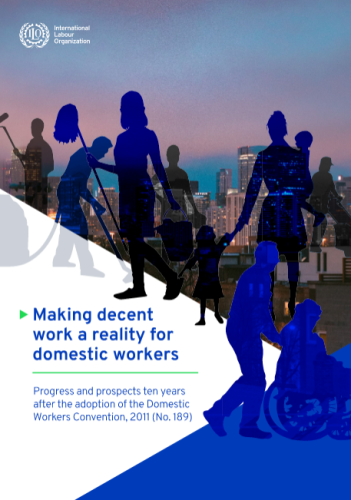Making decent work a reality for domestic workers: Progress and prospects ten years after the adoption of the Domestic Workers Convention, 2011 (No. 189)
The publication of this report, in the midst of a devastating global health pandemic, could not have come at a more critical time for domestic workers. This crisis has highlighted the vital role that they play in supporting the care needs of households. It has also exposed the precarious position the majority have found themselves in – many being obliged to go to work despite the health risks, others losing their jobs, with no access to income-support measures, putting them and their families at risk of falling into poverty or deeper poverty.
Meanwhile, the households in which they work have struggled with additional care responsibilities, as parents juggle with teleworking and ensuring that their children are educated while at home. Never before has the interdependence of domestic workers and the households they care for been so clear. Neither has the vulnerability of the millions of domestic workers earning a living behind the closed doors of private households been so visible. This report is also timely since it marks the tenth anniversary of the adoption of the Domestic Workers’ Convention, 2011 (No. 189), and its accompanying Recommendation (No. 201), dedicated to the sector in its entirety. Ten years ago, the adoption of these standards was celebrated worldwide by domestic workers’ organizations.
- Sub-Saharan AfricaNorth AmericaLatin America and the Caribbean



